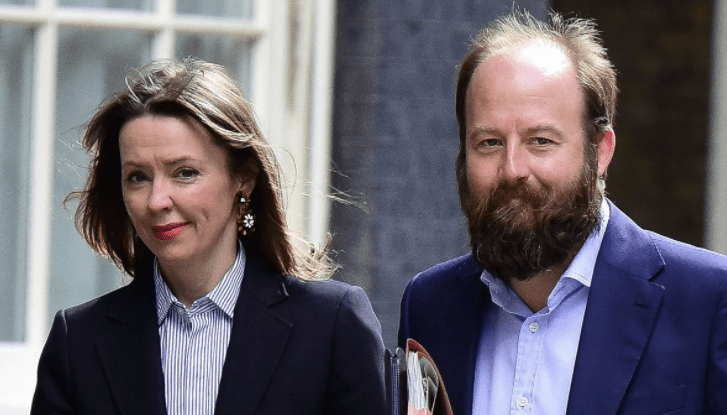Theresa May’s two chiefs of staff Nick Timothy and Fiona Hill have resigned. The pair have good claim to be the most powerful special advisers in British political history, their hold on Mrs May was even greater than that of Alastair Campbell and Jonathan Powell on Tony Blair. Yesterday, one Tory who knows the trio well wondered whether May would be able to function without them. But May will now have to.
If Timothy and Hill had stayed, it would have prompted a leadership challenge. A growing number of Cabinet Ministers have been clear since Thursday night that the departure of her chiefs of staff was required if Mrs May was to stay in office. The Cabinet resented both their power and their manner, they did little to disguise who they thought was really in charge. Hill was an abrasive figure, who revelled in not being charming. While Timothy’s cleverness could tip over into intellectual arrogance at times.
Cabinet Ministers want the departure of these two to be the precursor of a return to genuine, collective decision making. In other words, the restoration of proper Cabinet government—something we haven’t had for decades now.
May’s chief of staffs quitting creates a vacancy. The Prime Minister would be well advised to fill it with an experienced Cabinet Minister, say Jeremy Hunt, who would be Deputy Prime Minister and Downing Street chief of staff.
What is keeping May in office, as I say in The Sun this morning, is the Tory fear of another election, there is a near universal view in the party that they would do worse in any second poll. This worry is compounded by the lack of any obvious, consensus choice as her successor.
I understand that Number 10 is now moving towards a formal, written agreement with the Democratic Unionist Party rather than the more ad-hoc arrangements that May indicated yesterday in her Downing Street statement. Senior figures feel that unless a deal is drawn up and signed in ink, there’ll be no guarantee of getting any government legislation through. But a growing number of Tories are becoming queasy about a formal deal with the DUP because of the Ulster party’s hard-line social conservatism.
Theresa May is in office, but she is not in power—as the departure of her closest advisers shows. How long she stays in Number 10 is up to the Tory party, as Fraser said this morning. But the Cabinet won’t move against her until they are confident that doing so won’t prompt a second election. But when they are sure of that, Mrs May’s time will be up.







Comments